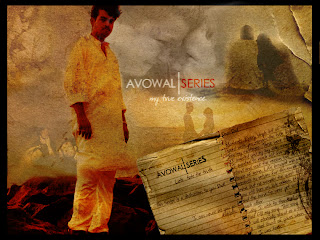Disclaimer: Through this post I wish to speak about the 'cause and the effect' scenario of expectations and might subscribe to few hardline views. For people who find it disgraceful, the emphasis is on conviviality, not controversy.
The trait of expecting or rather harboring expectations is the cause of all misery. I wish to begin by examining or rather try arriving at the root cause for most (if not all) problems in our life. Before I proceed, I need to stress that definition of problem is relative and the degree of concern that it invites is linked to our expectations i.e. expectations from ourselves, expectation from others etc. The factors which influence us to mark a situation as 'problem' are varied, most common being confusion which most of us rarely acknowledge. It is a general tendency to seek clear direction in any issue that we wish to handle, lack of it or possibility of improbability for the same creates the tag 'Mark it:Problem'. I wish to quote an example from the Buddhist Tales- Jataka Stories.
'...Lord Buddha along with his disciples was moving in the forest. Lord Buddha asked one of his disciples Anand to fetch some water as he was thirsty . Anand, who is one of the main disciples of Lord Buddha went to the nearby lake to fetch water. Having found that the water is murky and is not suited for drinking, he returns back to report it to Lord Buddha. Little Later, Lord Buddha sends him back to find out if there is any difference that arised. Anand returns back with the same answer. Lord Buddha asks Anand to repeat the exercise again little later. This time Anand finds that the sediments have settled down and clear water is available that can be picked up. Anand comes back with water and tells Lord Buddha about what he observed. Lord Buddha then points out that the motive of this exercise was not to get him to fetch water but to make him realise how our human mind is no different. Confusion or lack of clarity regarding what we need to do, a battery of issues being fired at us constantly places our mind in the same state as that pond with murky water. What we need to do is to allow ourselves some time so that the sediments of doubt, misunderstanding settle down and get clarity in our thoughts. This helps us make more effective choices...'
The necessity for quoting the above excerpt, is to throw light on how we are not able to understand the root cause of most of the problems we face in life. Allowing ourselves some time to think regarding the same makes us realise that the degree of expectation attached with various resources and relationships is the major root cause.Why do we expect? This is a tough question to answer but let us examine the scenario of how it will reflect our attitude if we moderate our expectation levels. I wish to speak of an observation from nature which is analogous to understanding this scenario.
Consider the types of bonding between elements (I assure you that this example only demands a basic understanding of chemistry and is devoid of any complexity but endowed with rich experiences of nature). There are two kinds of bonding i.e. ionic bond and covalent bond where the former speaks of a bond where only one element donates electrons for the bonding while the latter speaks of a bond where both the elements involved donate electron for the bonding. The strength of an ionic bond is much stronger than the covalent bond.
Similarly, even in our lives, when we wish to invest our time and resources in issues and relationships, we tend to expect a return from our investment as in a covalent bond where both the parties involved have an expectation from one another. I wish to argue that we need to atleast try once to invest with no expectations of return like the ionic bond. The feeling of satisfaction for having given with no expectation for a return of favor is quite immense. One need to notice that in an ionic bond, the donor donates becauses it seeks a better configured existence. Likewise, when we wish to seek a better state of existence for our own self, we need to understand the art of having no expectations.
Nature is full of examples which might help one understand the need and happiness this practice might fetch. This post is an attempt to remind you, me and everyone the joy of giving. I am sure it is atleast worth a try. Comments and your observations are most welcome!



